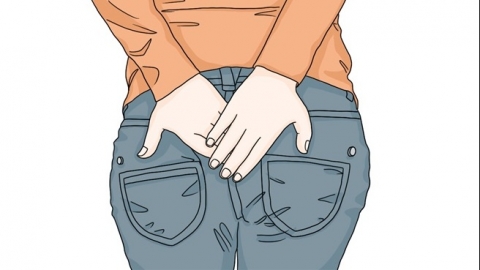What causes anal pain?
In general, anal pain may be caused by improper diet, prolonged sitting, hemorrhoids, anal fissure, anal sinusitis, and other reasons. It is necessary to seek medical attention promptly and follow medical advice for treatment. Details are as follows:

1. Improper diet: Long-term consumption of spicy or high-fiber foods may damage the skin around the anus or irritate the gastrointestinal tract, leading to constipation or diarrhea. Constipation can cause tearing and pain in the anal area, while diarrhea can repeatedly irritate the anus, causing pain. It is recommended to adjust the diet structure, avoid excessive intake of spicy foods, and increase consumption of bland and easily digestible foods.
2. Prolonged sitting: Remaining seated for extended periods may lead to poor circulation around the anus and pressure on local tissues, resulting in anal pain. Additionally, prolonged sitting may exacerbate conditions such as hemorrhoids, further intensifying the pain. Avoid sitting for long periods, get up and move around regularly to promote blood circulation around the anus. Furthermore, engage in physical exercise to improve physical fitness and enhance the resilience of perianal tissues.
3. Hemorrhoids: Hemorrhoids are swollen, dilated veins in the lower rectum or anal canal that form clusters. Hemorrhoid formation is associated with factors such as prolonged sitting, difficulty in defecation, and long-term consumption of spicy foods. When hemorrhoids are stretched or compressed, anal pain may occur, sometimes accompanied by moisture. Follow medical advice to use medications such as AnTai ointment, Ma Ying Long Musk Hemorrhoid Ointment, and Huaijiao Pills to alleviate inflammation and pain.
4. Anal fissure: An anal fissure refers to a longitudinal tear or ischemic ulcer in the full thickness of the anal canal skin. The fissure runs parallel to the longitudinal axis of the anal canal, appearing spindle-shaped or oval, usually about 0.5-1.0 cm in length. Anal fissures are typically caused by chronic constipation, internal sphincter spasm, anal stenosis, and other factors. They often cause severe anal pain and may also be accompanied by bleeding during bowel movements. Under medical guidance, use medications such as lidocaine hydrochloride gel, glyceryl trinitrate ointment, and erythromycin ointment for pain relief and anti-inflammatory treatment.
5. Anal sinusitis: Anal sinusitis refers to an inflammatory disease affecting the anal sinuses and anal valves. During an episode, pain is felt inside the anus, typically caused by fecal infection, and may also be accompanied by a feeling of rectal heaviness. Under medical guidance, use medications such as amoxicillin capsules, metronidazole tablets, and levofloxacin hydrochloride capsules for antibacterial and anti-inflammatory treatment.
During treatment, appropriate therapeutic measures should be taken according to the specific cause, and changes in the condition should be closely monitored. At the same time, maintaining good living habits and dietary practices can also help prevent and treat anal pain.
References:
1. Chen XiaoPing, Wang JianPing, Zhao JiZong. Surgery [M]. 9th edition. Beijing: People's Medical Publishing House, 2018: 430-436.
2. Luo ChengHua, Gu Jin. Colorectal and Anal Surgery [M]. 3rd edition. Beijing: People's Medical Publishing House, 2019: 205-212.





